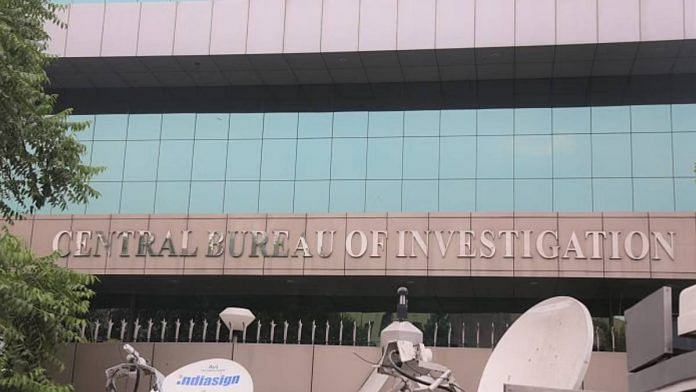New Delhi: With more and more non-BJP states withdrawing the general consent given to the CBI, a parliamentary panel has recommended that the government enact a “new law” and give wider powers to the federal agency for investigating crucial cases “without the need of State’s consent and interference.”
In its Action Taken Report (ATR), the Standing Committee on Personnel, Public Grievances, Law and Justice, headed by senior BJP Rajya Sabha MP Sushil Kumar Modi, has further said that some safeguards should be laid down in the new law “to ensure objectivity and impartiality in the functioning of CBI so that the States also don’t feel discriminated and absolutely powerless.”
The ATR on Demand for Grant (2023-24) pertaining to the Department of Personnel and Training (DoPT) was tabled last Tuesday in Parliament.
The 30-member committee, which has 11 BJP MPs from the Lok Sabha and the Rajya Sabha, has recommended that the ‘State’s consent clause’ should be removed “only in such cases, which are considered to be a threat to the nation’s security and integrity” and “any delay in investigation of such cases by the CBI may lead to a general dissatisfaction among the citizens of the country.
So far, ten states – Tamil Nadu, Mizoram, West Bengal, Chhattisgarh, Rajasthan, Kerala, Jharkhand, Punjab, Meghalaya and Telangana – have withdrawn the general consent granted to the CBI under Section 6 of the Delhi Special Police Establishment (DSPE) Act, 1946 for investigating cases in the respective state’s jurisdiction.
Functioning under Dept. of Personnel, Ministry of Personnel, Pension & Public Grievances and established in 1963, the Central Bureau of Investigation is governed by the DSPE Act. Section 6 of the Act mandates that the state government’s consent is a prerequisite for any investigation by the CBI to be carried out in the jurisdiction of the respective state. However, such consent is not required in cases where the constitutional courts entrust investigation to the CBI.
Withdrawal of consent has become a big political issue among the opposition-ruled states, who have been alleging that the Centre is “misusing” central agencies like the CBI and the Enforcement Directorate for political gains.
However, of the ten states that have withdrawn consent to CBI, two – Rajasthan and Chhattisgarh – are now ruled by the BJP after the November assembly elections and are likely to allow CBI in their states for investigating cases. Even newly sworn-in Mizoram CM Lalduhoma had told ThePrint in a recent interview that the CBI will be given general consent to investigate corruption cases in the state.
Also Read: CBI losing ‘general consent’ one state after another only affects the agency, not Modi govt
‘DPSE Act has many limitations’
The parliamentary panel had recommended that the government enact a new law in its report on Demand for Grant (2023-24) pertaining to the Department of Personnel and Training (DoPT) that was tabled in March 2023.
It has now reiterated the need for a new law in the ATR, after not accepting the reasons given by the government.
As per Section 6 of the DPSE Act, the government had said in its response, state governments have granted a general consent to CBI “for the investigation of specified class of offences against specified categories of persons, enabling CBI to register and investigate those specified matters.”
“For investigation of any matter in such a state, which is not covered in the aforesaid consent, specific consent of the state government is required for the CBI to investigate in the state. CBI seeks such consent on a case to case basis,” it further said.
The committee, while not accepting the government’s reply, notes that the DPSE Act has “many limitations.” “….This has led to severe limitations on powers of CBI to investigate crucial cases impartially and objectively, which will give rise to corruption and organised crimes in states,” it says.
“Hence, as recommended earlier, apart from the DSPE Act, there is a dire need to enact a new law and define the status and functions and give wider powers to CBI to investigate such crucial cases without the need of State’s consent and interference.”
Cases are referred to the CBI on the basis of concurrence of the State Governments, by the High Court as well as by the Supreme Court. It is also the nodal agency which coordinates investigations on behalf of Interpol Member Countries.
(Edited by Tony Rai)
Also Read: CBI is relying on a 2017 UK court judgment in case against Rolls Royce. Here’s what it says



